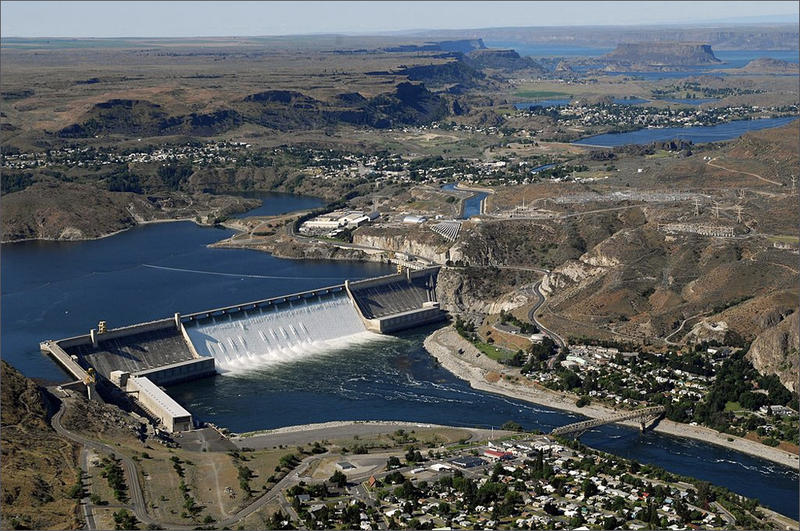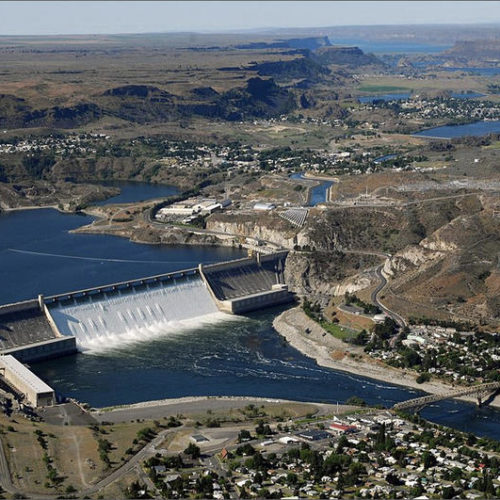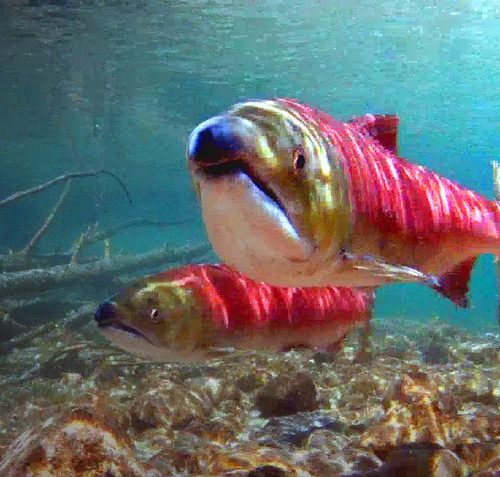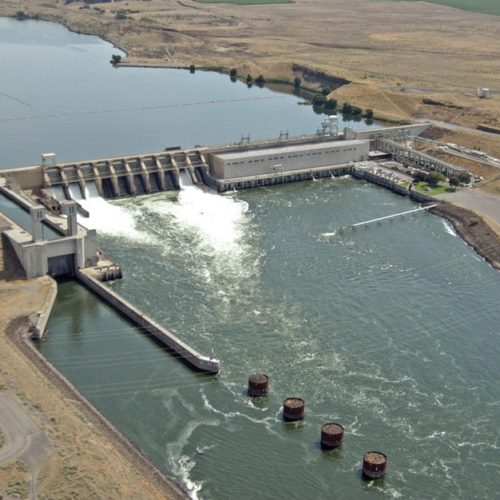
U.S. House And Senate Pass Bills To Compensate Spokane Tribe For Losses From Grand Coulee Dam
READ ON
The U.S. House voted on Monday to pay compensation to the Spokane Tribe for its losses when Grand Coulee Dam was built in the 1930s and 1940s.
When the dam was built, Spokane tribal lands were flooded or otherwise damaged and the tribe was never compensated.
The action by the House this week will help to rectify that.
It voted to approve annual payments to the tribe, the money coming from the Bonneville Power Administration, the entity that operates the federal dam system on the Columbia and Snake Rivers. Monday’s vote follows a Senate vote in June. The proposal now goes to President Trump for his signature.
Washington Democratic Senator Maria Cantwell and Republican Congresswoman Cathy McMorris Rodgers championed the bill in both chambers. McMorris Rodgers’ 5th Congressional District includes the Spokane Reservation, and Cantwell is a member of the Senate Committee on Indian Affairs.
The compensation bill for the Spokanes has been in Congress for more than 15 years, getting through one chamber or the other, but never both. The Spokane Tribe is the second to receive money for losses due to Grand Coulee Dam; the Colville Confederated Tribes began receiving payments in the mid-1990s.
Copyright 2019 Spokane Public Radio
Related Stories:

Tribes Team With Northwest Researchers To Show Viability Of Salmon Above Upper Columbia Dams
The Upper Columbia United Tribes are working together to prove salmon can be reintroduced – and can survive – in the waters above Grand Coulee.

Report Lays Out Bleak Picture For Northwest Salmon ‘Teetering On The Brink Of Extinction’
Washington’s salmon are “teetering on the brink of extinction,” according to a new report. It says the state must change how it’s responding to climate change and the growing number of people in Washington.

Federal Decision To Keep Snake River Dams In Place Is Now Official. Controversy Far From Over
After four years of study, the Record of Decision makes the federal agencies’ preferred option official. Managers and dam supporters say it will benefit salmon, reliable hydropower and the economy. Wild salmon advocates, tribal representatives and renewable energy advocates say this decision will hurt salmon and the orcas that depend on them for food.















